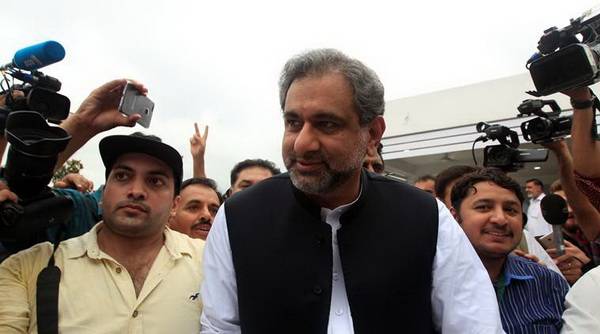
The international reaction to Mr Nawaz Sharif’s disqualification by the Supreme Court has been muted.
Washington and Beijing were probably the only two capitals that shared their positions on the political developments in the country following the court verdict, but neither gave any observation on the apex court’s decision. Both said the issue was Pakistan’s internal matter.
Pakistan Muslim League-Nawaz, in a statement issued by the Prime Minister’s Office after the verdict, railed against it, saying that the legal proceedings were unparalleled in the country's 70-year history. “Legal and constitutional requirements of fair trial were violated. We have suffered injustice,” the party noted even as it announced compliance with the verdict.
Due process is something very close to the heart of the international community, but no government chose to raise the issue.
The Chinese government said Mr Nawaz Sharif’s dismissal was Pakistan’s “internal affair”.
The advice for political parties was: “As a friendly neighbour, China hopes that all parties and sections in Pakistan can prioritise state and national interests, properly deal with their domestic affairs, maintain unity and stability and keep focusing on the economic and social development.”
Its focus was that relations should remain unaffected and that CPEC should continue unimpeded.
One reason for their emphasis on CPEC was that Mr Nawaz Sharif’s cabinet ministers had days before the announcement of the verdict said that Mr Sharif was being punished for initiating CPEC. Beijing reminded that, “building the Belt and Road and building a community of shared future, … serves fundamental interests of the two countries and peoples and promotes peace and development of the region and beyond.”
Mr Sharif’s cabinet members had also tried to drag in the Arab world by saying that the PML-N government’s “neutrality” on Yemen and Qatar was behind their political troubles. This was a direct allegation against one of the Arab countries, but mercifully the Arabs chose to remain silent.
Washington’s response was more measured.
A State Department spokesman said: “This is an internal matter. We look forward to a smooth transition as Pakistan’s parliament selects the next prime minister.” US Ambassador David Hale said in a statement after Khaqan Abbasi’s election: “We look forward to working with him to advance our shared interests in a secure, democratic, peaceful, and prosperous Pakistan and region.”
Not much change is expected in foreign policy after the change in PM House. There are two reasons for this. Firstly, the PML-N remains in power and, secondly Mr Nawaz Sharif would be remote controlling the government as the party chief. Furthermore, the PML-N government would be pre-occupied for the remaining period with domestic issues instead of attending to foreign affairs. Therefore, continuity is expected in external relations.
Moody’s Investors Service, the international bond credit rating agency, is, however, fearful about political uncertainty following Mr Nawaz Sharif’s disqualification. “If heightened political uncertainty and strife among the various branches of government disrupt the administration’s economic and fiscal agenda, macroeconomic stability and the government’s access to external finance could be impaired, weighing on Pakistan’s credit profile.”
The reaction in the international media has been mixed.
In its editorial, The Washington Post said: “Pakistan undoubtedly faces a period of political uncertainty. … Whatever the political outcome, Pakistan seems likely not to be shaken from its desire for closer relations with China… Pakistan’s military and its intelligence service also will remain powerful forces behind the scenes of the Muslim-majority nation, a nuclear weapons state. Still, Pakistan has so often been a miasma of uncertainty, impunity, coercion and violence that it is worth applauding the Supreme Court’s determination to see this case to a difficult but necessary conclusion. It’s a glimmer of hope for accountability and rule of law in a nation that could use much more of it.”
In an op-ed piece in The New York Times, it has been said: “The judges have clearly undermined the perception of justice by deposing Mr. Sharif without due process or trial to prove his innocence. Pakistan’s next national elections, scheduled for 2018, could have resulted in a historic second democratic turnover of power through elections.”
A Bloomberg editorial read: “Nobody should be above the law, but the circumstances surrounding the judgment are troubling. The justices have faced pressure from rival politician Imran Khan, who has been campaigning to drive Sharif from office.”
In the Guardian’s opinion: “Efforts must not stop there. The public register for beneficial owners of UK companies must be extended to British tax havens; it must include trusts; and a proper means of checking it must be introduced. Accountability should not depend on leaks, however effective they have proved this time.”
The writer is a freelance journalist based in Islamabad and can be reached at mamoonarubab@gmail.com

